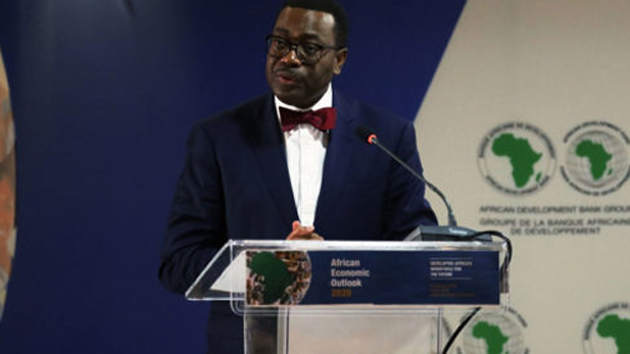 Peeved by the high cost of financing debts on the continent, the African Development Bank (AfDB) Group is pushing for the review of the global financing architecture to which African countries are exposed and racking up debts.
Peeved by the high cost of financing debts on the continent, the African Development Bank (AfDB) Group is pushing for the review of the global financing architecture to which African countries are exposed and racking up debts.
The group, at the opening of the 59th Annual General Meeting in Nairobi, Kenya, yesterday, noted that the reform could save African countries as much as $75 billion worth of debt financing yearly.
President of the Bank, Dr Akinwumi Adesina, recalled that in the last 10 years, when interest on loans was low, about 19 African countries issued Eurobonds of over $200 billion. But, with the current devaluation of currencies, the cost of financing the debts is a lot high and an albatross on several African economies expending as much as $20 billion in debt servicing.
Adesina said while there is nothing wrong with acquiring loans for productive investments, the global financing architecture has to be reviewed to ensure that African countries are not penalised, especially when they access the global capital markets and other credit facilities.
He said: “The so-called African risk premium, and you hear it all the time that African countries are borrowing more at high premium rates even above all others that have similar ratings. I believe that there should be a fair assessment of Africa’s risk.
“The UNDP shows that if African risks are properly and fairly estimated, the African countries would save as much as $75 billion per year just in debt service that they have. So, it is a big agenda to talk about,” he said.
He added that the African potential for growth and transformation is not in doubt. However, sound management of financing, debts, and transformation are key to the continental transformation.
He said a proper place to begin is to ensure that the global architecture is such that ensures fairness, justice, and inclusiveness to negotiate with creditors.
“Africa wasn’t there when the global financing architecture was being developed, therefore the Bretton Woods institutions were developed without Africans. And that has been the rule ever since then. One of the big things that Africa is asking for is that Africa needs more voices and presence at the table that has to do with global issues. Africa should not be a bystander in institutional issues and platforms that affect its development,” he said.
While he commended the International Monetary Fund (IMF) for responding to that need and creating a third seat for Africa on its Board, he regretted that the global architecture on climate financing still fails to address African issues.
He noted that Africa receives $30 billion for climate finance when it needs $277 billion a year to tackle climate change that is not of Africans’ making.
Adesina added that debt negotiation committees are now reviewing debts in some African countries, but the process needs to be a lot faster to ensure that those countries do not sink.
“There are stability mechanisms in other parts of the world, but not in Africa. We need a model that quickly meets and ensures African financial stability to create a buffer in case of shocks.”






